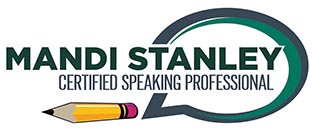Grammar Grappler #6: A Corny Way to Remember i.e. and e.g.
“What do i.e., and e.g., mean?”
This question arises in almost every Grammar-for-Grownups seminar I facilitate, and it is worthwhile to know the difference because we use these terms regularly in our business writing. Consider this sentence as our example, and choose the correct answer:
It is important to ensure real estate taxes, hazard insurance, and necessary utilities are maintained for each property along with coordinating proper maintenance (i.e./e.g., winterization, lawn care, general cleaning).
In this sentence, the correct term is e.g., not i.e. Sometimes writers use i.e., when they really mean e.g. How do you know the difference? E.g. means “for example.” (I know this is corny, but I remember this phonetically by saying eg-zample.) I.e. means “in other words” or “that is.” We use i.e., when we are providing further information, not listing examples. A proofreading trick for testing i.e., is to read it as “in effect” in the sentence.
So, in our sentence above, it should be rewritten with e.g., because the writer is providing examples of proper maintenance.
It is important to ensure real estate taxes, hazard insurance, and necessary utilities are maintained for each property along with coordinating proper maintenance (e.g., winterization, lawn care, general cleaning).
Now it’s your turn. Is the term used in this sentence correct?
Companywide procedures for data management create a standard that allows all project staff to find the correct (e.g., current) data with ease.
Answer: No. It should be written like this:
Companywide procedures for data management create a standard that allows all project staff to find the correct (i.e., current) data with ease.
Which other commonly confused Grammar Grapplers give you pause when writing?
To customize a keynote or professional development session that will have your audience laughing and learning, contact Mandi Stanley.
Certified Speaking Professional Mandi Stanley works with business leaders who want to boost their professional image by becoming better speakers and writers through interactive high-content keynotes, breakout sessions, workshops, technical writing seminars, and fun proofreading classes.
You might also like:
How Do You Handle Virtual Meeting Whiners?
Use this App to Capture Fresh Presentation Ideas
Wacky Word of the Week: Purge this Particular Word
Photo by Estúdio Bloom on Unsplash


 https://gratisography.com/photo/messy-pig-cake/
https://gratisography.com/photo/messy-pig-cake/ https://gratisography.com/photo/dog-licking-ice-cream/
https://gratisography.com/photo/dog-licking-ice-cream/


 Image by
Image by 
 Photo by Jelleke Vanooteghem on Unsplash
Photo by Jelleke Vanooteghem on Unsplash


